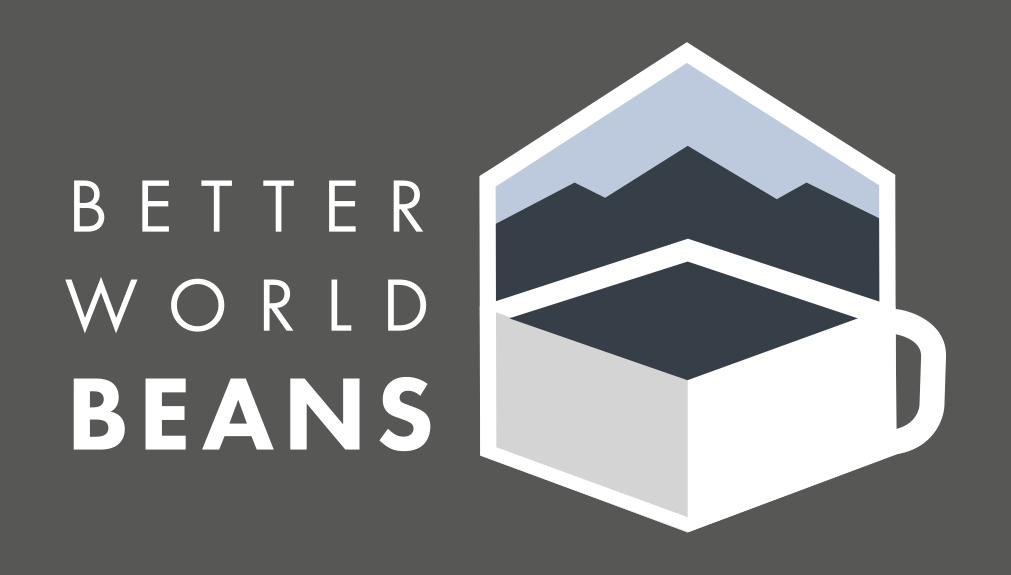Sustainable coffee combats climate change
Sustainable coffee is synonymous with shade grown coffee meaning the coffee plant grows in a forest-like setting under the canopy of large tropical trees. Traditionally coffee has been growing this way, but due to pressures to produce more and the increasing dominance of robusta coffee trees grown in Brazil’s flatter savannahs, some farmers have turned to monocropping coffee in the sun with little to no shade. While sun grown coffee does produce more, shade grown coffee is much better for the environment.
By growing coffee in the shade, the plants are more drought resistant, more resilient during hurricanes and extreme weather events, and by planting large trees to shade coffee there is more habitat for migratory and endemic bird species which help keep pest populations low. Check out the image below which is an agroforestry or agroecological form of growing coffee with other food crops.
By supporting small scale farmers like those in the Better World Beans program, you are directly supporting a type of agriculture that is more resilient and more environmentally friendly. An added bonus of having so much biodiversity is that farmers can plant food crops like bananas and plantains as well as taro root and yucca in with their coffee so that their families and neighbors can have something to eat as well.
In Franco Bidó some of the most common crops to plant with coffee are bananas, plantains, taro, pigeon pea, and sometimes even the occasional orange and grapefruit tree! Check out this image below to see if you can spot the larger and fatter plantain and banana leaves next to the smaller coffee bushes. Here is a link to some more reading on the ecologically importance of shade grown coffee
2. Ethical coffee supports strong farming communities
Many small scale farmers like those that sell to Better World Beans do not have adequate coffee storage facilities to be able to hold onto coffee until the prices rise so they are more vulnerable to the fluctuating market price of coffee. With a program like Better World Beans, the price we buy coffee for is not impacted by the world coffee price, a commodity that is traded on the stock market.
By investing in small scale farmers there is more money circulating in the rural economy, which means indirect economic impact through increased purchases from local businesses such as the neighborhood colmados or little convenience stores that often serve as mini grocery stores as well as a larger economic impact in the local towns where larger purchases are made.
One example is that for many years, the farmers in Franco Bidó had no refrigerators. All food was prepared fresh and the scraps were fed to chickens or pigs. This meant that the women of the community, who traditionally prepare the meals in the house, spent more time cooking each day to prepare fresh food. Since small scale farmers are doing better, more families have refrigerators freeing up some more time during the day for recreation, relaxation, and even opening up more business opportunities for the community’s women.
3. Ethical coffee often tastes better and fresher
Shade grown coffee is most often of the Arabica variety, the other main variety is Robusta which is more bitter and used in espresso blends. Arabica coffee is best grown at higher elevations where the cooler nights and hot days let the bean build more unique and better tasting flavors in the cup. When coffee comes straight from the source, the coffee is fresher and you the consumer are receiving a better tasting product.
Coffee passes an average of seven hands from the producer to the consumer. For Better World Beans coffee there are just two steps, from the producer to us and from us to you. By bypassing all the steps in the middle the product is fresher.
4. You are voting with your dollar
Consumers have an immense amount of power to vote with their dollar. When people’s diets changed and when consumers began to ask more questions about where their food was grown and under what conditions, suppliers began to produce food more organically and organic standards were set.
The same applies to coffee. When coffee consumers begin to ask, what does coffee production look like? Who picked my coffee and under what conditions? The consumers are empowered and their purchases are votes with their dollars. Collectively, we have an immense amount of power to change the coffee industry so that coffee production is healthier for the people that labor in the fields and the environment.



